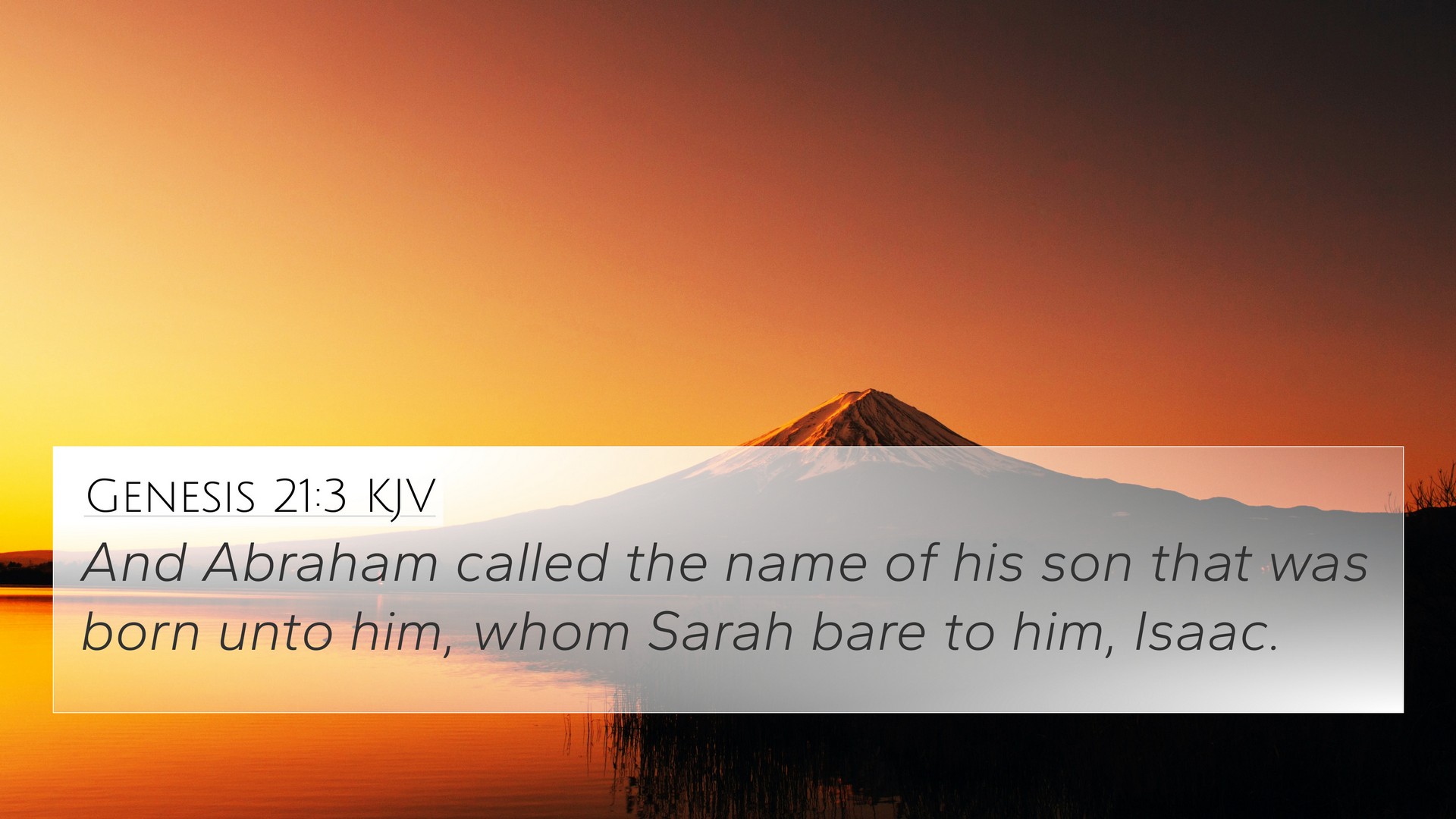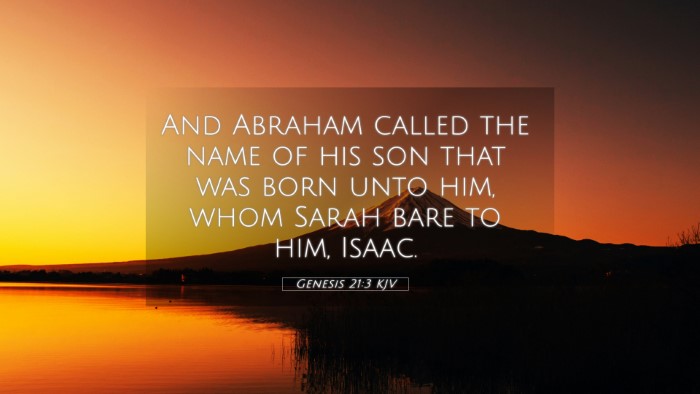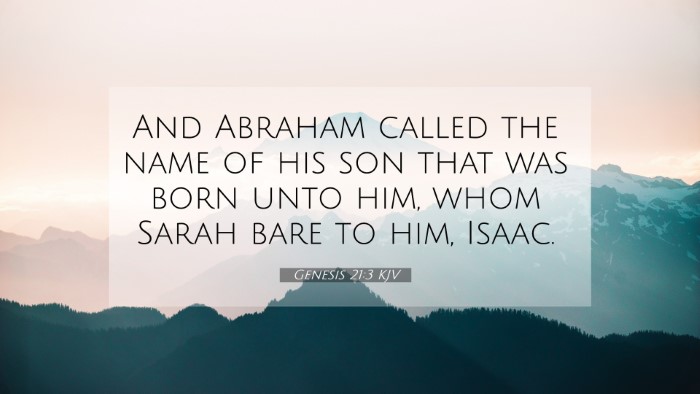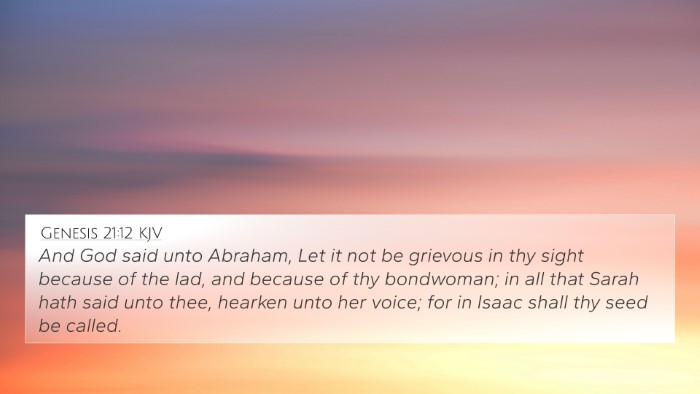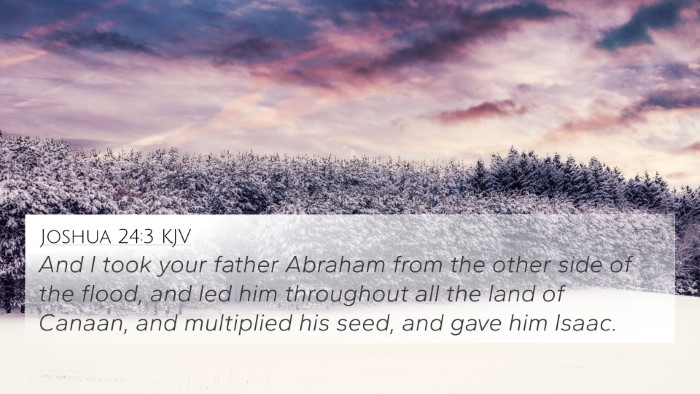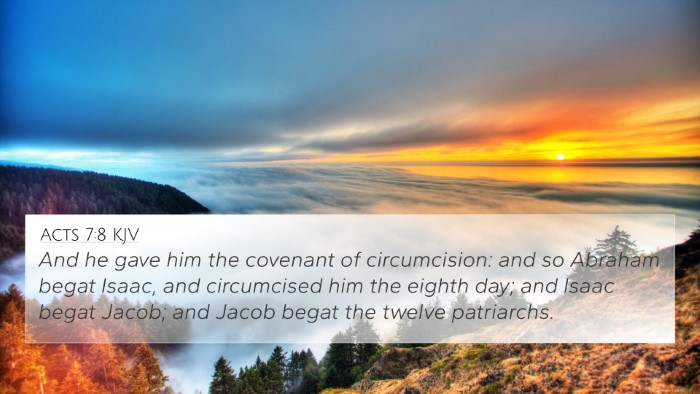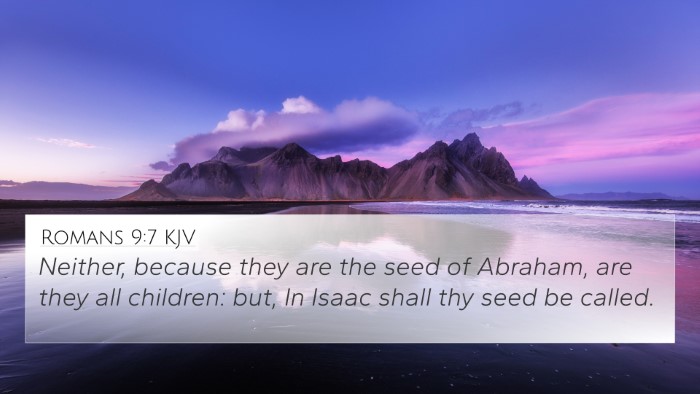Understanding Genesis 21:3
Genesis 21:3 states, "And Abraham called the name of his son that was born unto him, whom Sarah bare to him, Isaac." This verse reflects significant themes in the narrative of Abraham and the covenant promises of God, spotlighting the fulfillment of divine promise and the joy that accompanies the birth of Isaac.
Meaning and Significance
The naming of Isaac is critical as it emphasizes the connection between God's promises and their fulfillment in the life of Abraham and Sarah. Here, the name Isaac, which means "laughter," highlights the joyous response of both Abraham and Sarah to God’s miraculous provision of a son in their old age. The act of naming in the Biblical context often carries prophetic significance, indicating God's purpose and intention.
Commentary Insights
- Matthew Henry: Henry notes that Abraham's naming of Isaac indicates not only obedience but also a joyful recognition of God’s faithfulness. He emphasizes that God's promises, even when they seem impossible, will always come to pass.
- Albert Barnes: Barnes remarks on the symbolic nature of Isaac’s name, reflecting that the laughter of Sarah at the promise (Genesis 18:12) has transformed into joyful fulfillment. He sees this event as another testament to God’s ability to perform what He has promised.
- Adam Clarke: Clarke elaborates that the act of naming Isaac also symbolizes the resolution of previous doubts and fears experienced by Abraham and Sarah. He suggests that this laughter represents not only amusement but profound joy and expectation for the future.
Thematic Connections and Cross-References
This verse can be linked to various other Scriptures that resonate with its themes of promise and fulfillment. Some notable cross-references include:
- Genesis 17:19: The promise of Isaac's birth was initially foretold, indicating his significant role in God’s covenant.
- Genesis 18:10: God’s announcement of Isaac's birth, showing the divine plan in motion.
- Romans 9:7-9: References to Isaac in the context of God’s covenant people, reinforcing that the promise extends to Abraham’s seed.
- Hebrews 11:11-12: A reflection on Sarah's faith in God’s promise, paralleling Isaac's birth.
- Galatians 4:28: Paul discusses believers as children of promise, akin to Isaac, illustrating the spiritual implications of Isaac's story.
- Isaiah 51:2: The emphasis on Abraham and Sarah's lineage as a source of blessing connects back to Isaac’s birth.
- Matthew 1:2-16: The genealogy of Jesus that traces back to Abraham and specifically includes Isaac as part of the messianic line.
- Romans 4:19-21: Paul describes Abraham's faith in God's promise, linking to the birth of Isaac as a pivotal moment of faith.
- 1 Chronicles 1:28-34: The descendants of Abraham through Isaac to reinforce genealogy significance.
- Luke 3:34: The genealogy of Jesus, showing the enduring importance of Isaac in the lineage of Christ.
Inter-Biblical Dialogue
Genesis 21:3 serves as a vital point of dialogue between the Old and New Testaments, illustrating God's continual work through history and His unwavering commitment to His promises. The connection leads us to explore how God's covenantal relationship with Abraham through Isaac is foundational to understanding the Christmas story and the broader narrative of redemption.
Using Cross-References
For those looking to delve deeper into the connections between Scriptures, tools for Bible cross-referencing can greatly enhance one's understanding. A comprehensive Bible concordance or a cross-reference Bible study guide can aid in identifying links and themes throughout the Bible, particularly how verses like Genesis 21:3 interweave with others across different books.
Conclusion
The naming of Isaac encapsulates the joy and faith that accompanies God's promises. By exploring cross-references and thematic connections, one gains a broader understanding of the Scripture and its implications for faith today. As we navigate these verses, the connections between them become clearer, allowing for a more enriching biblical study experience.
